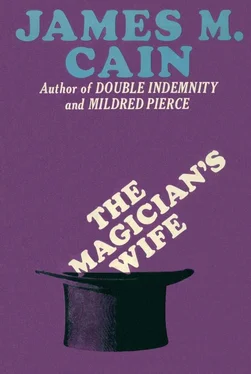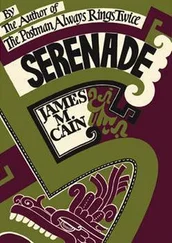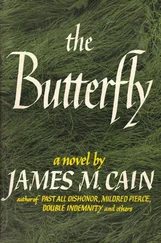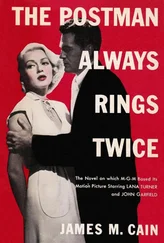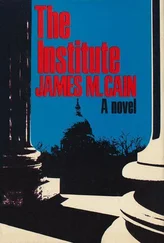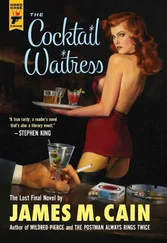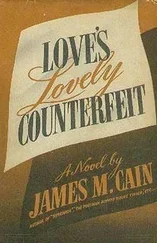James Cain - The Magician's Wife
Здесь есть возможность читать онлайн «James Cain - The Magician's Wife» весь текст электронной книги совершенно бесплатно (целиком полную версию без сокращений). В некоторых случаях можно слушать аудио, скачать через торрент в формате fb2 и присутствует краткое содержание. Город: New York, Год выпуска: 1965, ISBN: 1965, Издательство: The Dial Press, Жанр: Детектив, на английском языке. Описание произведения, (предисловие) а так же отзывы посетителей доступны на портале библиотеки ЛибКат.
- Название:The Magician's Wife
- Автор:
- Издательство:The Dial Press
- Жанр:
- Год:1965
- Город:New York
- ISBN:978-1299526174
- Рейтинг книги:5 / 5. Голосов: 1
-
Избранное:Добавить в избранное
- Отзывы:
-
Ваша оценка:
- 100
- 1
- 2
- 3
- 4
- 5
The Magician's Wife: краткое содержание, описание и аннотация
Предлагаем к чтению аннотацию, описание, краткое содержание или предисловие (зависит от того, что написал сам автор книги «The Magician's Wife»). Если вы не нашли необходимую информацию о книге — напишите в комментариях, мы постараемся отыскать её.
The Magician's Wife — читать онлайн бесплатно полную книгу (весь текст) целиком
Ниже представлен текст книги, разбитый по страницам. Система сохранения места последней прочитанной страницы, позволяет с удобством читать онлайн бесплатно книгу «The Magician's Wife», без необходимости каждый раз заново искать на чём Вы остановились. Поставьте закладку, и сможете в любой момент перейти на страницу, на которой закончили чтение.
Интервал:
Закладка:
“Take it up!” ordered Mr. Jackson.
Earl grudgingly nodded at a cook, who speared a half cabbage from a warming pan and slid it onto a plate. Then he speared one of the aluminum-foil packets and eased it onto the cabbage. Then with his fork he teased open the foil, flipping it into a trash can and leaving three slices of corned beef already arranged on the cabbage. With a spoon he added a boiled potato and set the plate on the counter, a polychrome creation, in a previous era perfect for a still life, in this one for a pink, green, and white color photo. Sally scooped it up and darted off through a door marked OUT. Bill, in a few moments, led the way to the dining room, then whispered to Clay: “Wouldn’t you know it? There I was, worrying yet about that genius at lousing things, and giving the front office credit for having him in the bull pen, when all the time he was right in my own kitchen. Can you beat that? Well, Clay, can you?”
“He had to be somewhere, din’t he?”
“Boy, you can say that again. Be back.”
Mr. Jackson, at a wigwag from a girl, darted off, breaking off the conversation as all conversations with managers break off. Clay went back to his table and ceremoniously ate the corned beef, while Sally girl-Fridayed nearby, notebook and gold pencil in hand. He said quite a lot: about mustard sauce, “if, as, and when wanted”; about the potato, “which should dry in hot metal once the water’s poured off, to meal it up a bit and take the sogginess out”; about cooking time, “which Earl now understands, but should be stressed in your memo, so other chefs get the point and don’t double the work without any good reason.” Then, almost without a break, he asked: “Well, how did you get my name? I bite. I want to know.”
“Oh, it was simple enough,” she answered amiably. “Another thing I insist on with these girls is that they help each other out instead of playing a lone hand, as most of them tend to do if left to themselves. So, when that hostess gave me your menu she also whispered your name.”
“Oh, so that was it.”
“You disappointed there wasn’t more to it?”
“No, I admire it. So, that clears it up.”
“Doesn’t clear you up, though. You might have said, while we were on the subject, that you were the Mr. Lockwood, Grant’s Mr. Big, that I’d heard so much about.”
“That would have made a difference?”
“Well? Shouldn’t it?”
“I want to be loved for myself alone.”
“I’ll — take it under advisement.”
He began getting outrageous, reverting to her stomach, which once more was pressed to the opposite chair, and calling it “a dream stomach, curvaceous, shapely, and soft.” Then he asked: “Did you know your navel shows through?”
“Well, why wouldn’t it? It’s there.”
She didn’t move, but sounded a little sharp, and pinked up. Suddenly he said: “Sally, I’ve fallen for you, which I suppose is why I say things like that. So why don’t we step out? Why don’t we do it tonight? At the Chinquapin-Plaza Blue Room or any place you like?”
“Well — I couldn’t. Not tonight.”
Something about her manner caused him to look at her hard. Then, peremptorily he asked her: “This Sally Alexis — is she Miss or Mrs.?”
“I’m afraid I have to say Mrs.”
“As you could have said in the first place,” he said in a moment, his face growing quite red. Then, husking up, he added: “I’m sorry I overstepped.”
“Will that be all, sir?”
“All I think of now.”
When she had gone he sat in a sulk, his face getting redder and redder. Then he took a five-dollar bill from his wallet and slipped it under his plate. Then he got up and, looking neither to right nor to left, made his way between the tables and through the gate, then turned to follow the rail out. But he felt his sleeve plucked, and when he looked she was there, holding out his five-dollar bill. Coldly she informed him: “I don’t accept tips, Mr. Lockwood.”
“O.K. — but the girl on the station?”
“I’ll see that she gets it, then.”
He bowed, then stalked grandly out, pausing on the portico to let his chest expand, then heading for the parking lot. His glow got clouded, however, in an absurd, perhaps not so absurd, way. Passing the picture window, he happened to glance inside, and suddenly black eyes locked on his, glittering oddly through the glass. He tried to look away, couldn’t seem to manage it. His feet carried him by, but of his own free will, he never broke out of the stare. His walk became a stumble, as he went on in a state of upset out of all proportion to the pitch of one brief moment.
2
Getting into his big green coupe, he drove from the downtown shopping district, where the restaurant was, through canyons of office buildings to a bridge over the Chinquapin River, and on the other side turned into Tidal Boulevard, or Death Avenue, as it was called, where Grant’s, Inc., was located. It was a multilane complex beside the river, of lofts, factories, warehouses, piers, and a railroad track. At a heavy wire fence he pulled up, and when a watchman opened a gate, he drove into an asphalt enclosure to a space marked MR. LOCKWOOD. Leaving the car, he entered a low building of industrial brick, which was arranged inside on the split-level plan, with glassed-in offices topside and cold-storage rooms below. Bounding up a metal stairway, he reached his own office, a rectangular glass fish-bowl that commanded the whole floor. Calling Miss Helm, his secretary, a dumpy little woman wearing glasses, he told her to “set up” a meeting, for 3:45, of the three chain-restaurant salesmen, the girls in the packing room, all cutters, and the head bookkeeper. Then, after a glance at his call slips, he put on a black quilted coat for warmth and went down to the main storage room. His first act as he stepped through the heavy steel door was to inhale, deeply and attentively, as “Your nose knows.”
It caught nothing now but the clean smell of good meat, red and white hind- and fore-quarters hanging in rows on hooks fitted to trolleys, which in turn ran on an overhead rail system so complex, with its switches and spurs and sidings, that it made the railroad outside seem simple by comparison. After a solemn exhale, he began his afternoon rounds, spending a minute or so in each small room at one side, where things were being done by a force in quilted coats like the one he had on. First he stopped with two cutters slicing Delmonico steaks, using big curved knives and small spring scales, trimming off fat to make the exact eight ounces, and placing them in piles with paper “dividers” between. Presently he nodded and went on to the next room, where roasts were being cut, weighed, and ticketed with metal pins, and then on to another room, where veal, lamb, and pork were being cut. Then, crossing the main room, he went through a door to a room not quite so cold, where machines were being run, the biggest a hot-dog creator, as large and as exact in precision parts as an IBM computer. It took pink ground meat, fed it into a complex that stuffed it into skins, and changed it into dogs. Then, on a belt, it traveled these to a packaging mechanism. When they were wrapped in loose plastic bundles, the belt traveled these to a heater, where the plastic was neatly shrunk, so the bundles came out tight, falling into a basket and bouncing like playful pups. Finally it traveled them to a labeler, which covered one side with a happy scene of children having a cookout and eating dogs named GRANT’S.
He tarried briefly by this mechanical miracle, but then passed on to a smaller machine, tended by several girls, and gave it close attention. Its main part was a slicer, to which a girl clamped meat, big slabs of beef brisket, already corned, cooked, and chilled. A rotary blade took off big even slices, which dropped to a belt. From it another girl took clutches of three slices each, and placed them on squares of aluminum foil. Other girls folded the foil, crimped it, tucked the shining packets so formed into boxes, and pasted on labels showing a gay restaurant scene and carrying the caption:
Читать дальшеИнтервал:
Закладка:
Похожие книги на «The Magician's Wife»
Представляем Вашему вниманию похожие книги на «The Magician's Wife» списком для выбора. Мы отобрали схожую по названию и смыслу литературу в надежде предоставить читателям больше вариантов отыскать новые, интересные, ещё непрочитанные произведения.
Обсуждение, отзывы о книге «The Magician's Wife» и просто собственные мнения читателей. Оставьте ваши комментарии, напишите, что Вы думаете о произведении, его смысле или главных героях. Укажите что конкретно понравилось, а что нет, и почему Вы так считаете.
